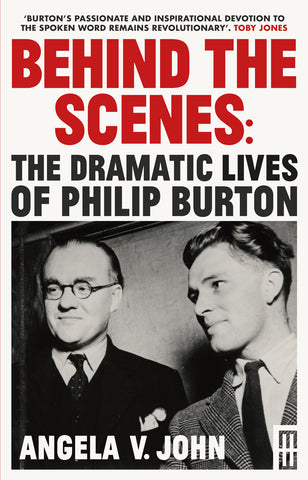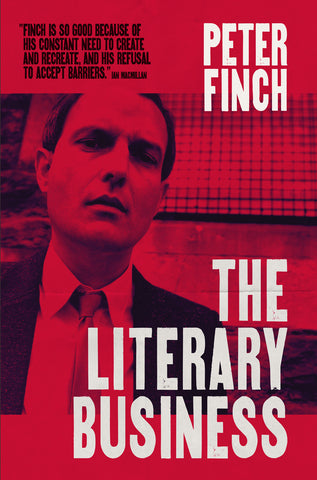August marks the celebration of female writers and translators from around the world. So we've put together a list of a couple of recommendations to read for this Women in Translation Month. Travel the world from the comfort of your favourite reading nook! And don't forget all these titles are included in our summer promotion with free postage to anywhere in Europe. Just use code EUROPE at the checkout!
The Lake by Bianca Bellová
Translated from Czech by Alex Zucker
A dystopian coming-of-age story set at a fishing village at the end of the world.
The men have vodka, the women troubles, the children eczema to scratch at, and the lake is drying up. Born into this unforgiving environment, Nami, a young boy, embarks on a journey with nothing but a bundle of nerves, a coat that was once his grandfather’s and the vague idea of searching for his mother, who disappeared from his life at a young age. To uncover the greatest mystery of his life, he must sail across and walk around the lake and finally dive to its bottom.
Winner of the EBRD Literature Prize 2023, The Lake is a raw account of life in a devastated land and the harsh, primitive circumstances under which people fight to survive.
The Rules of Bird Hunting by Eeva ParkTranslated from Estonian by Jayde Will
 Eeva Park began as the author of mood poems depicting nature, and has said that she mixed feeling and thought in her poetry, while her prose is a mixture of understanding and memory. This original collection, translated by Jayde Will is an exploration of values, real and imagined incorporating the best of Park’s work from the last three decades.
Eeva Park began as the author of mood poems depicting nature, and has said that she mixed feeling and thought in her poetry, while her prose is a mixture of understanding and memory. This original collection, translated by Jayde Will is an exploration of values, real and imagined incorporating the best of Park’s work from the last three decades.
Women who Blow on Knots by Ece Temelkuran
Translated from Turkish by Alexander Dave

Women who Blow on Knots chronicles a voyage reaching from Tunisia to Lebanon, taken by three young women and septuagenarian Madam Lilla. Although the three young women embark on the road for different reasons – for each holds a dark secret – it is only at the journey’s point of no return that Lilla’s own murderous motivations for the trip become clear...
An empowering tale that challenges us to ponder not only the social questions of politics, religion, and women in the Middle East but also the universal bonds of sister- and motherhood.
The Moon is a Pill by Aušra Kaziliūnaitė
Translated from Lithuanian by Rimas Uzgiris

Aušra Kaziliūnaitė’s poetry has been described as ‘post-avant-garde’; she is unafraid to shock readers with her surreal, ugly-beautiful imagery, alternative form, and regular resistance to the rigidity of social norms. In The Moon is a Pill, the reader discovers the extent of the poet’s social engagement, mixed with a swirl of psychedelia through an existential lens. As she walks around her city, questioning God, stalked by an abandoned stuffed bird, finding a grubby child in an egg, searching for answers in bus stops and windows, her writing is intimate and personal, yet never reassuring, never fluffy, and often with a quiet nod to the complex political past of her country: who can stop you from writing what you want?/ we must understand that his times were those of censorship/ we now live in a greenhouse like some kind of tomato… from ‘Freedom’...
The Summer Without You by Petar AndonvoskiTranslated from Macedonian by Christina E. Kramer

At the beginning of the summer, I had to spend two weeks in hospital… If I hadn’t fallen from the balcony, what happened later would likely never have happened at all.
So begins a memoir by a man trying to come to terms with the loss of a lover who is now a famous writer. He is given one more chance to forget by Vlado, the charismatic actor, who is not as successful as he believes. They will have a holiday to recover – find the lost love between them and bury their shared memories of Ivan. It will be a summer without you.
The Equestrienne by Uršuľa Kovalyk
Translated from Slovak by Julia and Peter Sherwood
 It is 1984 in a small town in the east of the Czechoslovak Socialist Republic. Karolína is growing up. It is not easy. Her mother has too many boyfriends and her grandmother carries a knife. In an attempt to escape she joins a riding school on the edge of town. There she befriends Romana, a girl with one leg shorter than the other and Matilda, a rider and trainer who helps the two girls overcome their physical limitations. Together they form a successful trick riding team. Soon the town doesn't seem so small anymore as Karolína explores Pink Floyd and smoking, and discovers her knack for seeing deep into others' souls.
It is 1984 in a small town in the east of the Czechoslovak Socialist Republic. Karolína is growing up. It is not easy. Her mother has too many boyfriends and her grandmother carries a knife. In an attempt to escape she joins a riding school on the edge of town. There she befriends Romana, a girl with one leg shorter than the other and Matilda, a rider and trainer who helps the two girls overcome their physical limitations. Together they form a successful trick riding team. Soon the town doesn't seem so small anymore as Karolína explores Pink Floyd and smoking, and discovers her knack for seeing deep into others' souls.
The Equestrienne is a poetic and caustically funny coming-of-age novel about the will of one young girl to realise her dreams; it is a celebration of friendship between women and also a bitter acknowledgement that greed and the desire for power can threaten any relationship.
Burning Bones by Miren Agur Meabe
Hana by Alena Mornštajnová
Translated from Czech by Julia and Peter Sherwood

It’s 1954 and nine-year-old Mira’s life is about to change forever. After a typhoid outbreak rages through her town, robbing her of her parents and siblings, the orphaned child is forced to live with her mysterious, depressive Aunt Hana, a figure both frightening and fragile. Gradually, Mira uncovers the secrets of their troubled family history and begins to understand why her aunt is so incapable of trusting herself and the world around her.
Deftly weaving two separate timelines, the harrowing reasons behind Hana’s reclusive way of life, the guilt she wears as palpably as a cloak, and the tattoo on her wrist, are revealed to Mira.





